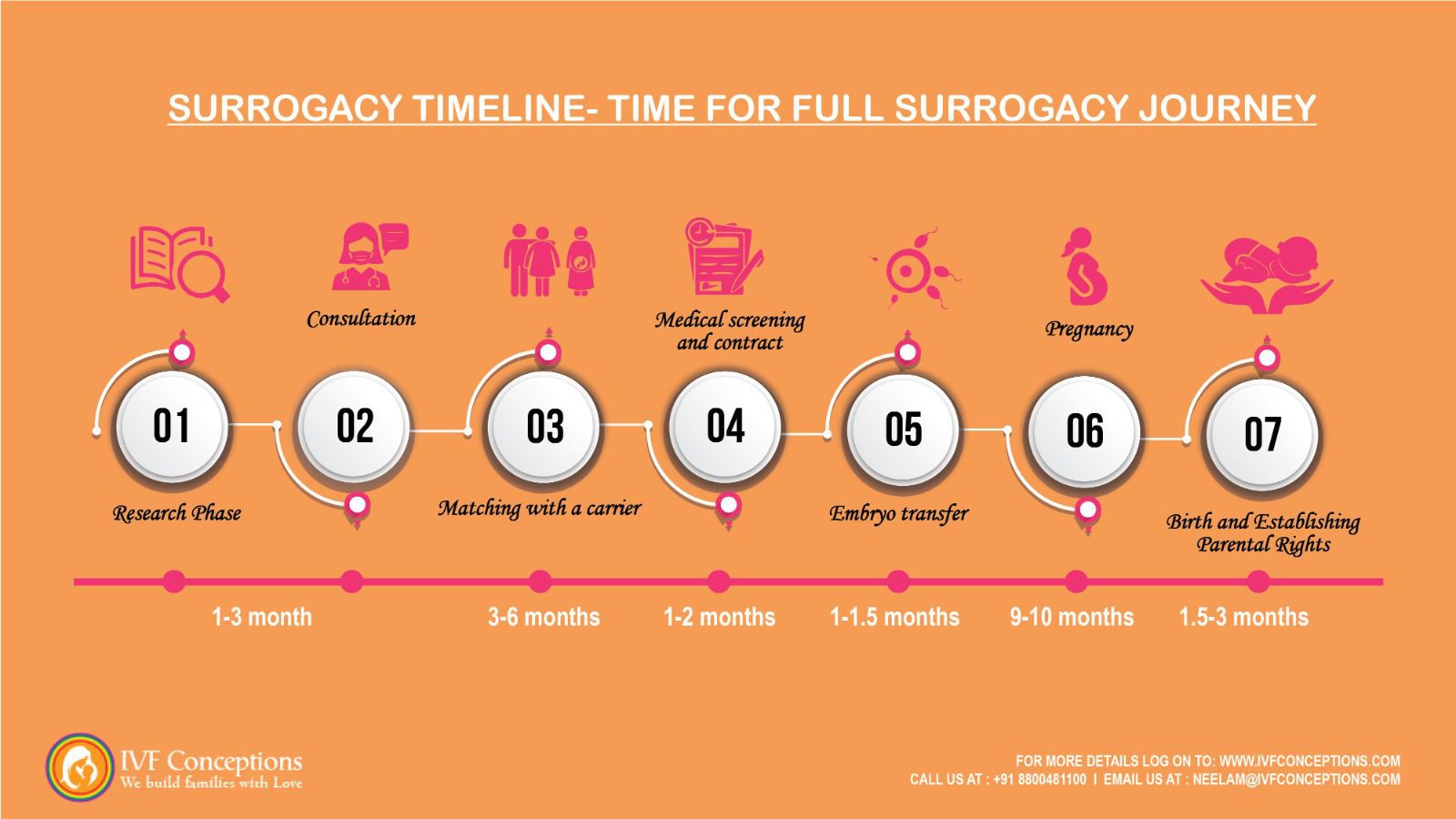Surrogacy in the Philippines |Surrogate Mother cost in Philippines


Surrogacy, the practice of a woman carrying and giving birth to a child for another individual or couple, has been gaining increasing attention and popularity in recent years. The Philippines has emerged as a popular destination for intended parents seeking surrogacy services, owing to its relatively low costs and the availability of qualified medical professionals. In this blog post, we will delve into the intricacies of surrogacy in the Philippines, particularly focusing on the associated costs and the factors that contribute to them.
Surrogacy costs resources worldwide:
Top 4 cheapest countries for surrogacy
Best Countries for Surrogacy 2023- Top International Destinations
Risks of international surrogacy
Global International Surrogacy Options
Surrogacy In Mexico-Everything Intended Parents Need To Know
Cheapest Country For Gay Surrogacy- Colombia
Low-cost surrogate mother in Argentina
Low-cost surrogate mother in Kazakhstan
Surrogacy in the Philippines: An overview
The legal status of surrogacy in the Philippines is somewhat ambiguous. While there are no specific laws prohibiting surrogacy arrangements, the country’s laws do not explicitly recognize or regulate the practice. This legal gray area has led to the proliferation of surrogacy agencies and clinics operating in the country, catering to both domestic and international clients.
For intended parents considering surrogacy in the Philippines, certain requirements and regulations must be met.
Generally, surrogate mothers must be between the ages of 21 and 35, have given birth to at least one child previously, and undergo medical and psychological evaluations to ensure their suitability for the process. Intended parents, on the other hand, must provide proof of their identity, marital status (if applicable), and medical records, among other documents.
Is surrogacy legal in the Philippines?
Despite the lack of specific laws regulating surrogacy in the Philippines, the country has gained popularity as a desirable location for gestational surrogacy arrangements. The absence of extensive legal frameworks governing the practice, coupled with relatively lower costs compared to other nations, has rendered surrogacy a flexible and appealing option for aspiring parents in the Philippines.
The country’s current legal understanding of motherhood is primarily based on the act of giving birth, rather than genetic connections. This gap in legislation has allowed the surrogacy industry to flourish, attracting individuals and couples seeking alternative paths to parenthood through surrogacy. The Philippines’ surrogacy landscape operates in a legal gray area, filling a void for those pursuing this route to build their families.
Surrogacy in the Philippines permitted for:
- Married and non-married heterosexual couples
- Married and non-married homosexual couples
- Singles parents

 How much is surrogacy in the Philippines?
How much is surrogacy in the Philippines?
Low cost of Surrogacy in the Philippines is one of the primary reasons for the Philippines’ popularity as a surrogacy destination as compared to other countries.
The expenses involved in the surrogacy process can be broadly categorized into the following:
- Agency fees: These fees cover the services provided by the surrogacy agency, such as matching intended parents with surrogate mothers, coordinating the legal and medical processes, and providing ongoing support throughout the journey.
- Medical expenses: These expenses include the cost of fertility treatments, prenatal care, delivery, and post-partum care for the surrogate mother, as well as any necessary medical procedures for the intended parents.
- Surrogate mother compensation: Surrogate mothers in the Philippines typically receive compensation for their time, effort, and the physical demands of the pregnancy and birth. This compensation can vary depending on the specific arrangement and the agency involved.
- Legal fees: Intended parents may need to engage the services of legal professionals to ensure compliance with the relevant laws and regulations, as well as to handle any necessary legal paperwork, such as establishing parentage and obtaining travel documents for the child.
- Travel and accommodation expenses: If the intended parents are from outside the Philippines, they may need to factor in the costs of travel and accommodation during the surrogacy process, particularly for important milestones like the embryo transfer and the birth.
It’s important to note that the total cost of surrogacy in the Philippines can vary significantly depending on the specific circumstances and the agency or clinic chosen. However, in general, the cost is estimated to be considerably lower than in countries like the United States, Canada, or European countries, making it an attractive option for many intended parents.
Cost of Surrogacy in the Philippines for Intended Parents:
One of the primary factors drawing intended parents to the Philippines for surrogacy is the relatively lower cost compared to many other countries. However, it’s important to note that the total expenses can vary significantly depending on the clinic or agency chosen, as well as the specific program or services required.
Surrogacy clinics in the Philippines offer two distinct surrogacy program options to cater to the diverse needs and preferences of individuals and couples seeking surrogacy services in the Philippines.
- IVF Surrogacy Program: The cost of a standard surrogacy program in the Philippines is from $28,000 to $35,000 based on the locations and types of services needed.
This program covers the essential aspects of the surrogacy journey, including the services of a surrogate mother, medical procedures, and legal support. It provides a more affordable option for those who may have already undergone fertility treatments or have viable embryos ready for transfer.
- Guaranteed Baby Program in the Philippines: The cost of a guaranteed surrogacy baby in the range of $55,000 to $60,000 in the Philippines.
This comprehensive program is designed to offer intended parents peace of mind and a higher likelihood of success.
The Guaranteed Surrogacy Baby Plan is a comprehensive package that covers all essential aspects of the surrogacy journey, including:
- In-Vitro Fertilization (IVF) cycle(s) for intended parents
- Pre-screening and matching with a suitable surrogate mother
- Surrogate mother’s compensation and expenses
- Embryo transfer procedure(s)
- Prenatal care and delivery expenses for the surrogate
- Legal assistance for establishing parentage
- Support services from the surrogacy agency/clinic
- Travel and accommodation costs (may be included or additional)
- Guarantee of a successful pregnancy and live birth
This plan essentially provides a “guaranteed baby” by accounting for multiple IVF cycles and embryo transfers if needed, until a successful pregnancy and delivery are achieved. It offers intended parents a comprehensive solution and peace of mind throughout the surrogacy process.


To surrogacy clinics in the Philippines
By carefully considering these factors and seeking guidance from professionals in the field, you can increase your chances of finding the best surrogacy clinic in the Philippines that meets your specific needs and provides a supportive and successful surrogacy experience.
The Role of IVF Clinics in Surrogacy
When embarking on a surrogacy journey, choosing the right IVF (vitro fertilization) clinic is crucial for achieving successful outcomes. Your best surrogacy clinic in the Philippines will play a pivotal role in guiding you through the process and recommending surrogacy as a viable option for addressing infertility issues.
Surrogacy is a widely recognized assisted reproductive technology (ART) method that has gained significant popularity for helping intended parents have a healthy baby. The process involves a surrogate mother in the Philippines, who carries and delivers the child on behalf of the intended parents, overcoming various infertility challenges they may face.
IVF clinics in the Philippines offer a range of assisted reproductive procedures tailored to address different fertility concerns. These clinics employ advanced techniques, such as IVF, to create embryos using the intended parent’s genetic material, which are then transferred to the surrogate mother’s uterus.
When selecting an IVF clinic for your surrogacy journey, consider the following factors:
- Expertise and Success Rates: Evaluate the clinic’s expertise in surrogacy and IVF procedures, as well as their success rates in achieving healthy pregnancies and live births.
- Laboratory Facilities: State-of-the-art laboratory facilities and advanced technologies are essential for ensuring the highest quality of care and increasing the chances of successful outcomes.
- Counseling and Support Services: Look for clinics that offer comprehensive counseling and support services to guide you through the emotional, psychological, and practical aspects of the surrogacy process.
- Legal and Ethical Practices: Ensure that the clinic adheres to all legal and ethical guidelines governing surrogacy and IVF procedures in the Philippines, ensuring the well-being and rights of all parties involved.
- Communication and Transparency: Effective communication and transparency from the clinic are crucial for building trust and ensuring a smooth surrogacy experience.
By partnering with a reputable IVF clinic in the Philippines, intended parents can benefit from the expertise and guidance of experienced professionals, increasing their chances of achieving their dreams of parenthood through surrogacy.
IVF and surrogacy treatments and procedures are provided by leading fertility clinics in Manila.
- ICSI (Intracytoplasmic Sperm Injection)
- IMSI/PICSI
- IUI (Intrauterine Insemination)
- PGD (Preimplantation Genetic Diagnoses)
- PGD
- Assisted Hatching (LAH)
- Cryopreservation and storage facilities
- Eggs/sperm/embryo freezing
- Gestational Surrogacy

 How to Choose the Best Surrogacy Clinic in the Philippines
How to Choose the Best Surrogacy Clinic in the Philippines
Selecting the right surrogacy clinic is crucial for a successful and satisfying surrogacy journey. With the plethora of options available in the Philippines, it is essential to take a patient-centric approach and carefully evaluate various factors to ensure you make an informed decision that aligns with your needs and expectations.
Infertility conditions can be emotionally and mentally taxing, potentially leading to poor choices if not guided properly. To mitigate these risks and ensure you choose the best surrogacy clinic in the Philippines, it is advisable to seek professional assistance throughout the process.
When evaluating potential surrogacy clinics, consider the following key elements:
- Reputation and Experience: Research the clinic’s track record, success rates, and experience in handling surrogacy cases. Look for clinics with a proven history of successful outcomes and satisfied clients.
- Medical Expertise: Assess the qualifications and expertise of the medical team, including fertility specialists, obstetricians, and other healthcare professionals involved in the surrogacy process. Ensure they have the necessary skills and knowledge to provide high-quality care.
- Legal and Ethical Practices: Verify that the clinic adheres to all legal and ethical guidelines governing surrogacy in the Philippines. This includes ensuring proper contracts, informed consent, and respect for the rights and well-being of all parties involved.
- Surrogate Screening and Support: Inquire about the clinic’s processes for screening and selecting surrogate mothers, as well as the support and resources provided to them throughout the journey.
- Counseling and Support Services: Look for clinics that offer comprehensive counseling and support services to intended parents, addressing the emotional, psychological, and practical aspects of the surrogacy process.
- Transparency and Communication: Evaluate the clinic’s communication practices and their willingness to provide transparent information about their services, fees, and processes. Clear and open communication is crucial for building trust and ensuring a smooth experience.
Who can do Surrogacy in the Philippines?
There are various medical conditions and circumstances that can make surrogacy a viable option for individuals or couples seeking to have a child. The following are some common reasons why intended parents may consider surrogacy in the Philippines:
- Advanced Age: As couples age, the quality of their eggs and sperm can decline, making natural conception more challenging. In such cases, surrogacy provides an alternative path to parenthood, as a younger surrogate mother can carry the pregnancy.
- Female Infertility: Women with certain infertility conditions, such as poor uterine health, congenital anomalies, or a history of hysterectomy, may be unable to sustain a pregnancy themselves. Surrogacy allows them to have a child genetically related to one or both intended parents.
- Surgical Procedures: Some women may have undergone surgical procedures that have compromised their ability to carry a pregnancy, such as the removal of the uterus due to conditions like fibroids or polyps. Surrogacy can help these women overcome this obstacle.
- Female Health Concerns: Certain medical conditions, such as kidney, heart, or liver issues, can make pregnancy risky for the intended mother. Surrogacy provides a safer alternative by allowing a healthy surrogate to carry the pregnancy.
- Failed Previous Treatments: Couples who have experienced multiple failed attempts at assisted reproductive technologies (ART) or recurrent miscarriages may turn to surrogacy as a more viable option for achieving a successful pregnancy.
In the Philippines, surrogacy offers a more accessible and affordable solution for intended parents facing these challenges, making it an attractive destination for those seeking alternative paths to parenthood.
Challenges and Considerations:
While surrogacy in the Philippines offers a more affordable alternative for intended parents, it is crucial to consider the ethical and cultural implications of the practice. There are ongoing debates surrounding the potential exploitation of surrogate mothers, particularly those from economically disadvantaged backgrounds, who may feel compelled to engage in surrogacy arrangements out of financial necessity.

 Surrogacy Baby Birth and Exit Process in the Philippines
Surrogacy Baby Birth and Exit Process in the Philippines
According to the Philippine Civil Register Act, the woman who gives birth to a child is legally recognized as a registered mother. To establish paternity, either the father or mother must acknowledge the relationship on the child’s birth certificate.
In surrogacy arrangements within the Philippines, the interactions between the intended parents and the surrogate mother are solely governed by a “surrogacy agreement.” This contract outlines the specific roles, obligations, and rights of all parties involved throughout the surrogacy process.
Consequently, when a child is born through surrogacy in the Philippines, the birth certificate initially lists the surrogate mother, who physically delivered the baby, as the mother, and the child’s genetic father as the father. This approach provides legal clarity regarding the parentage of the child within the context of surrogacy in the country, as there are no specific laws addressing these arrangements.
Conclusion:
Surrogacy in the Philippines offers a viable and affordable option for individuals and couples seeking alternative paths to parenthood. While the legal landscape surrounding surrogacy remains ambiguous in the country, the availability of reputable clinics and experienced medical professionals has made the Philippines an attractive destination for intended parents.
However, it is crucial to approach the surrogacy process with caution and seek professional guidance every step of the way. Intended parents should thoroughly research and vet potential clinics and agencies, ensuring they adhere to ethical practices, provide comprehensive support services, and have a proven track record of successful outcomes.
Furthermore, it is essential to understand the legal and financial implications of surrogacy in the Philippines, as well as the potential risks and challenges involved. Seeking legal counsel and discussing all aspects of the process with professionals can help mitigate these risks and ensure a smooth and fulfilling surrogacy journey.
If you’d like to learn more about IVF, Egg Donation, or surrogacy Consulting services globally, check out the rest of our website at IVF Conceptions. We offer legally secure and affordable surrogacy consulting services for FREE.
Our team has over 13 years of experience facilitating surrogacy arrangements, egg donation, and serving as an advocacy resource for infertile couples and LGBTQ individuals seeking to build families. Till now we have helped and supported thousands of the intended parents with their family-building journey, and we can help you as well. Happy to share the references from the past IPs if needed.
Our founder and chief surrogacy consultant, Neelam Chhagani, passionately helps couples struggling with fertility challenges. Since starting our surrogacy consulting agency in 2013, we’ve helped welcome over 500 babies for intended parents nationwide.
Our team includes experts from diverse backgrounds with leading reproductive attorneys, professionally trained top fertility doctors, former surrogacy case managers, experienced and kind surrogate mother and egg donor coordinators, mental health professionals specializing in infertility counseling, and a logistic support team to assist you in your chosen surrogacy country.


Frequently Asked Questions (FAQs) for surrogacy price in Phillippines
Is surrogacy legal in the Philippines?
While there are no specific laws prohibiting surrogacy in the Philippines, the practice operates in a legal gray area as it is not explicitly regulated or recognized by the country’s laws.
How much does surrogacy typically cost in the Philippines?
The cost of surrogacy in the Philippines can vary depending on the clinic or agency and the specific services required. However, it is generally more affordable compared to many other countries, with estimates ranging from $28,000 to $65,000 for comprehensive surrogacy programs.
What are the requirements for intended parents and surrogate mothers?
Intended parents must provide proof of identity, marital status (if applicable), and medical records, among other documents. Surrogate mothers must typically be between the ages of 21 and 35, have given birth previously, and undergo medical and psychological evaluations.
Can international intended parents pursue surrogacy in the Philippines?
Yes, the Philippines is a popular destination for international intended parents seeking surrogacy services due to the relatively lower costs and availability of qualified medical professionals.
What legal considerations should be intended parents be aware of?
Intended parents should seek legal counsel to ensure compliance with relevant laws, handle necessary legal paperwork (such as establishing parentage and obtaining travel documents for the child), and understand the implications of the surrogacy agreement.
More Resources:
- American Society for Reproductive Medicine (ASRM): https://www.asrm.org/
- The American Infertility Association (AIA): https://resolve.org/
- Family Equality Council: https://www.familyequality.org/
- National Center for Lesbian Rights (NCLR): https://www.nclrights.org/